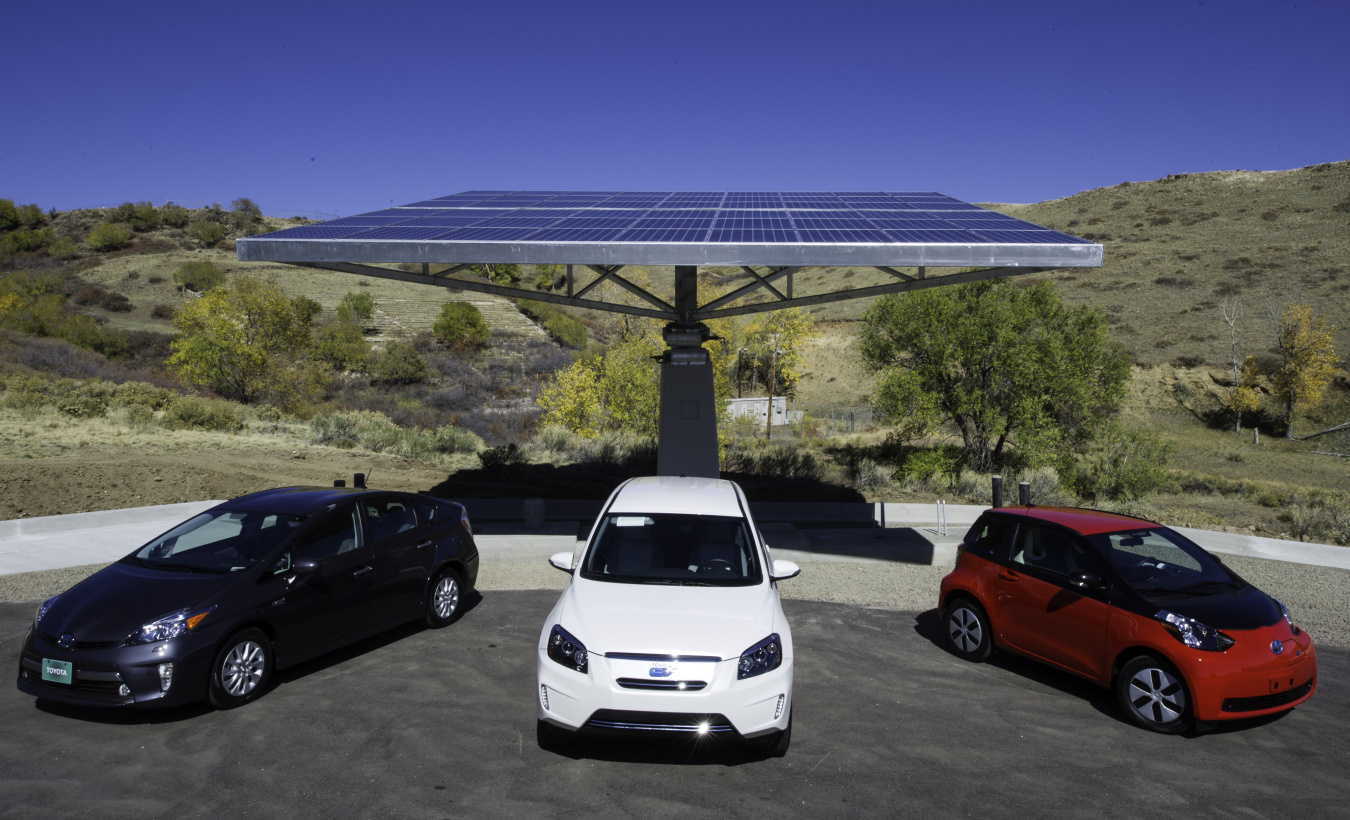
All-electric and plug-in hybrid cars purchased in 2015 may be eligible for federal and state income tax credits. Photo by Dennis Schroeder/NREL
Even in these days of low gas prices, plug-in electric and other types of alternative fuel vehicles are still often cheaper to fill up than conventional ones. With tax season approaching, there are more ways to save money than ever. Plug-in electric vehicles, charging stations, and other alternative fueling infrastructure qualify for federal or state tax credits.
Vehicle Tax Credits
When it comes to tax credits, buying a new plug-in electric vehicle offers the best bang for the buck. Depending on the size of the vehicle’s battery, buyers of new, commercially-available plug-in electric vehicles (PEVs) may qualify for $2,500 to $7,500. Learn how much each vehicle model can qualify for on FuelEconomy.gov’s Federal Tax Credits page or see the Internal Revenue Service’s (IRS) plug-in electric vehicle website.
In addition to full-sized cars, electric motorcycle buyers may also be able to qualify for a tax credit. Qualified vehicles must have at least 2.5 kilowatt hours (kWh) of capacity, charge using an external source, have a gross vehicle weight of up to 14,000 pounds, can drive 45 miles an hour, and be manufactured for use on public roadways. The credit is for 10 percent of the cost of the vehicle, up to $2,500. Although this credit originally expired in 2013, Congress retroactively extended it through December 2016. Now drivers who purchased their two-wheeled vehicle between January 1, 2015 and December 31, 2016 can receive the credit. For more information, see the IRS Plug-In Electric Vehicle Credit website.
In addition to federal credits, a number of states have tax incentives for plug-in electric vehicles. Find out if your state offers any special tax incentives on the EV Everywhere Tax Credits and Other Incentives page.
Charging and Fueling Infrastructure Tax Credits
But the tax credits don’t stop with the vehicle itself. Fueling equipment for natural gas, propane, hydrogen, electricity, E85 (fuel blends that are up to 83% ethanol), and B20 (fuel blends up to 20% biodiesel) can qualify for federal tax credits. Commercial businesses that install alternative fueling infrastructure, including plug-in electric vehicle chargers, can receive up to 30 percent of the cost back, up to $30,000. Consumers who install charging or fueling infrastructure in their homes qualify for a tax credit of up to $1,000. Congress also retroactively extended this credit through December 2016. So if you installed a vehicle charger in your house or at your business during 2015, you can claim it on this year’s taxes. Learn more on the Alternative Fuels Data Center’s page or the IRS Notice 2007-43.
From tax credits to cheaper fuel, it pays to use less petroleum when you drive!

